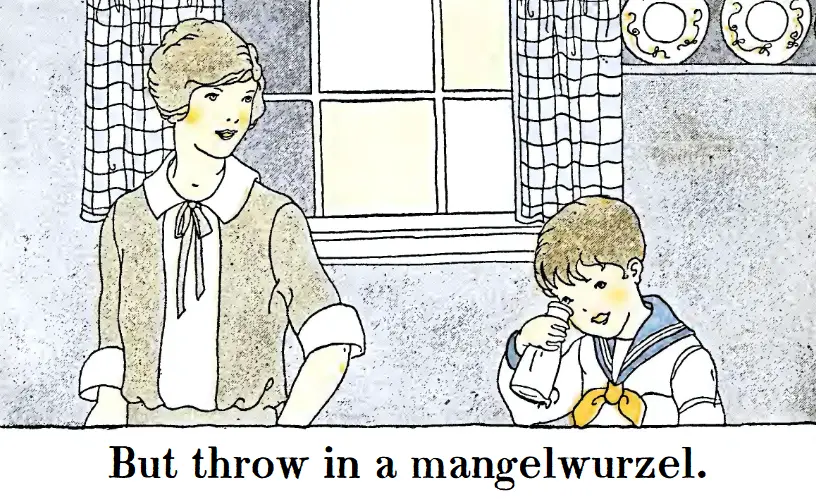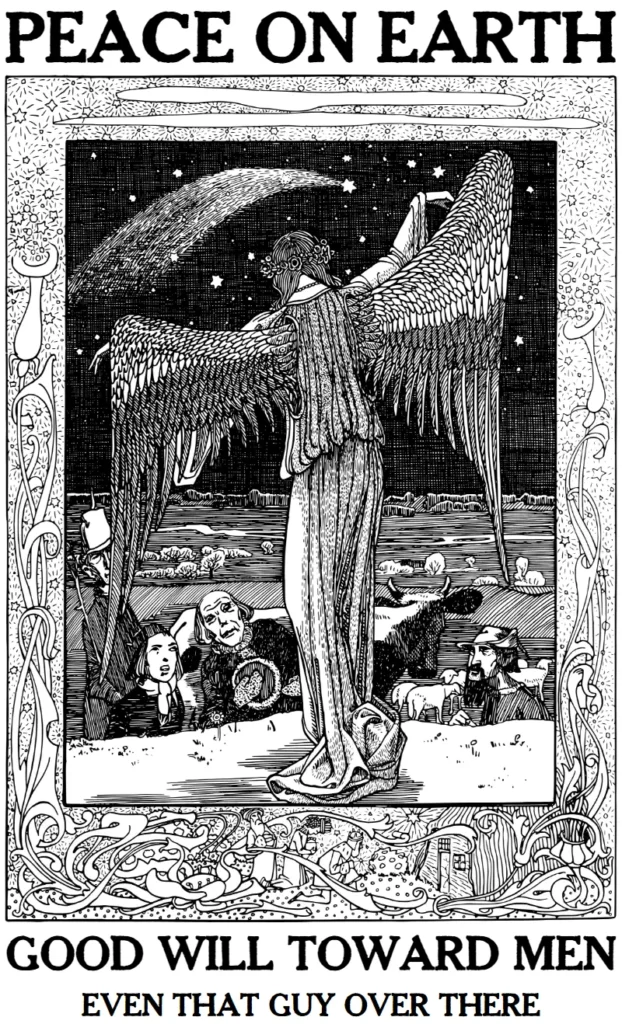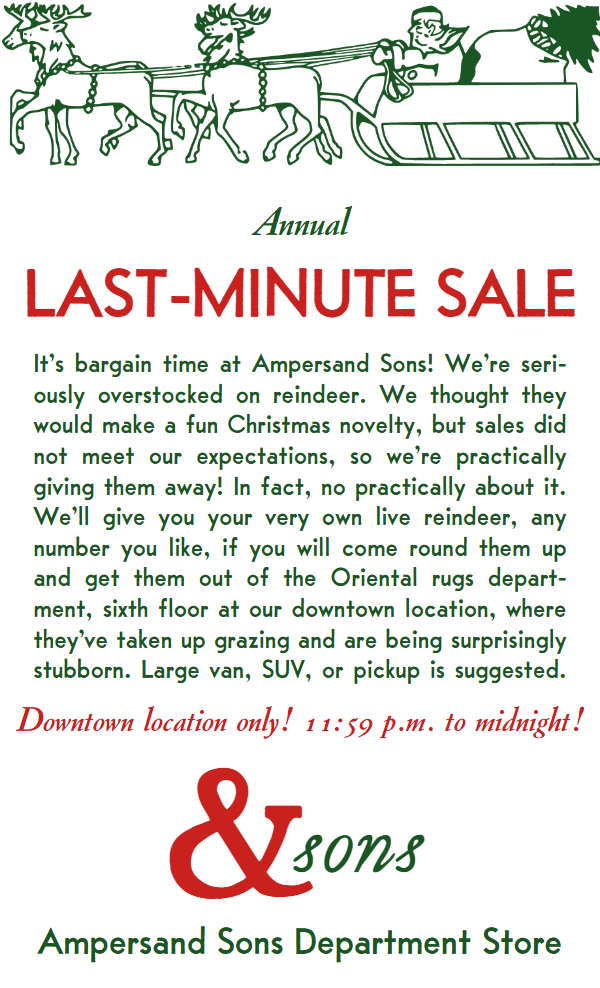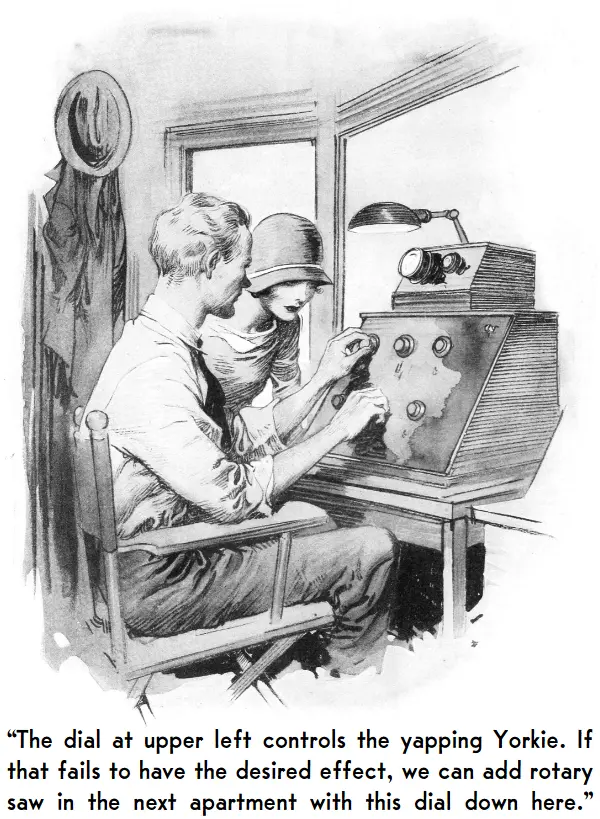Posts by Dr. Boli
THE HYDROSTATIC PARADOX OF CONTROVERSY.
If a fellow attacked my opinions in print, would I reply? Not I. Do you think I don’t understand what our friend, the Professor, long ago called the hydrostatic paradox of controversy?
Don’t know what that means?—Well, I will tell you. You know, that, if you had a bent tube, one arm of which was the size of a pipe-stem, and the other big enough to hold the ocean, water would stand at the same height in one as in the other. Controversy equalizes fools and wise men in the same way,—and the fools know it.
—From The Autocrat of the Breakfast Table.
KILO, MEGA, KIBI, MIBI…
In fact, 12 million pixels is a number with odd mathematical properties in photography. It is very rare for a camera to make pictures with a number of pixels in either dimension that is divisible by a big round number like 1,000; usually the dimensions are something like 4,608 x 3,456. The reason has to do with the aspect ratios of rectangular pictures, which in most cameras are either 3 x 2 or 4 x 3. At an aspect ratio of 4 x 3, 4,000 by 3,000 pixels make up exactly 12 million pixels, which is intellectually satisfying; but you need some math to figure out what figures make up 10 million pixels or 16 million pixels at the same aspect ratio.
So looking for evidence that pixels were counted the way bytes are counted got us nowhere. But our search did lead us into an interesting demonstration of an Internet principle Dr. Boli has pointed out before, to which we may for the sake of convenience assign the name Boli’s Law of Internet Controversy: On the Internet, the victory goes to the most pedantic.
It used to be true that a kilobyte was 1,024 bytes, and a megabyte was 1,024 kilobytes. But the pedants have had their way with “kilobyte” and “megabyte,” insisting that they must be exact powers of ten. Therefore a unit of 1024 bytes is a kibibyte; and similarly, what you think of as a megabyte is a mibibyte. Wiktionary now classifies the usual meaning of “kilobyte” as a secondary “informal” definition; and we can see the moment the pedants invaded, because Wiktionary also preserves the discussions that surround its changes. Three years ago, User A said,
Switch def. 1 and 2 even if right (in the past?)
kilobyte (kB) for 1000 bytes might not be rare anymore? Is it standard in Operating systems now? Many computer hackers want to hang on to KB vs kB, but might be admitting defeat and accepting kB and use KiB (or KB, or Kilobyte with capital K, to distinguish).
Note, incidentally, the punctuation that indicates the use of the interrogative tone in discourse, which Dr. Boli keeps promising to write an essay about in his series on cultural neoteny, and he will probably get around to it eventually. To this indefinitely phrased statement, User B replied:
Absolutely. The binary definition of 1024 is officially deprecated, and not only should the numbers be switched it should be made clear that the binary definition is obsolete.
Now, here is an interesting glimpse into the mind of the pedant. Read that sentence again, and then ask yourself: What office has the authority to deprecate, officially, a common noun in English?
There is an answer to that question in many other languages. If we were speaking French, we might be able to refer to an official ruling of the French Academy on the meaning of “kilobyte.” But English never developed such an authority. We may trace the reason back to Samuel Johnson.
The preface to Johnson’s dictionary is a work that truly deserves to be called seminal, because it sowed the seeds for all the lexicographical thoughts that have sprouted in English since Johnson’s time. It is also one of the finest specimens of English prose ever written.
In this preface, Dr. Johnson explains that he had thought he might set the rules for correct English for all time. But then… Well, let us hear it from the Doctor himself:
Those who have been persuaded to think well of my design, require that it should fix our language, and put a stop to those alterations which time and chance have hitherto been suffered to make in it without opposition. With this consequence I will confess that I flattered myself for a while; but now begin to fear that I have indulged expectation which neither reason nor experience can justify. When we see men grow old and die at a certain time one after another, from century to century, we laugh at the elixir that promises to prolong life to a thousand years; and with equal justice may the lexicographer be derided, who being able to produce no example of a nation that has preserved their words and phrases from mutability, shall imagine that his dictionary can embalm his language, and secure it from corruption and decay, that it is in his power to change sublunary nature, or clear the world at once from folly, vanity, and affectation.
This seems like obvious truth to English-speakers, because we have grown up in a world where Johnson’s opinion is accepted as dogma. Yet it is not dogma for other languages, as Johnson himself points out.
With this hope, however, academies have been instituted, to guard the avenues of their languages, to retain fugitives, and repulse intruders; but their vigilance and activity have hitherto been vain; sounds are too volatile and subtile for legal restraints; to enchain syllables, and to lash the wind, are equally the undertakings of pride, unwilling to measure its desires by its strength.
Johnson’s opinion that language cannot be legislated has become the dogma of professional lexicographers. Merriam-Webster defines kilobyte as “a unit of information equal to 1024 bytes,” and then adds, “also: one thousand bytes.” The American Heritage Dictionary has a very similar definition, with a long usage note at gigabyte explaining that the first meaning is more common in most contexts, but the other more common for certain branches of the industry.
None of this satisfies the pedant, however. The professional lexicographers are wrong. The pedant knows, and his authority is indisputable. It is official. The official authority usually turns out to be a high-school English teacher who taught pedantry along with English, but the pedant has absolute faith in the irrefutability of his knowledge. If you want to know how Sisyphus felt, try starting a discussion on the Wiktionary page for kilobyte, saying, “Hey, I don’t think you’re really right about…” You will not win, because you are not the most pedantic person on the Internet.
Well, then, what have we learned? Nothing about megapixels. As far as Dr. Boli has been able to determine, “megapixel” has always meant a million pixels, not a power of two, and not a little bit less than a million pixels, which is what we would require for 4,000 x 3,000 to make 12.1 megapixels. But we have learned, once again, that the only way to win an argument on the Internet is to be more pedantic than the opposition and never to admit the possibility of error. There was a time when Dr. Boli would have called himself pedantic, but the Internet has taught him that he is underqualified for pedantry.
THE MEGAPIXEL MYSTERY.
So why, Father Pitt asked, is it advertised as a 12.1-megapixel camera? He could not come up with any good answer to that question. Every definition of “megapixel” he found said that it was a million pixels, not a scant million, not a baker’s million, but a plain old honest-to-goodness million. Multiplying 4,000 by 3,000 gives us 12,000,000, according to the old-fashioned math Father Pitt learned.
Yet cameras with a resolution of 4,000 by 3,000 are usually advertised as 12.1-megapixel cameras. It seems to be the industry standard.
So Father Pitt came to us and asked his question, and of course we gave him the verbal equivalent of a shrug and asked why he thought we should know.
But then the question ate at us.
Well, here is a job for artificial intelligence! Surely the bots, having absorbed the wisdom of the entire Internet, would have come across exactly the answer we were looking for and could distill it into a few short paragraphs in the style of a junior-high-school essay.
So we asked Google’s pet bot, “Why is a resolution of 3000 by 4000 called 12.1 megapixels instead of 12.0 megapixels?”
The answer came quickly and included a numbered list. It began, “A 3000×4000 resolution is exactly 12,000,000 pixels (3000 x 4000), which rounds to 12 megapixels (MP), but…”
Hold on there, Googlebot! You say 12,000,000 pixels rounds to 12 megapixels, but by Dr. Boli’s calculation it is exactly 12 megapixels. This is the anomaly for which we sought an explanation. You are indulging in a petitio principii, or in plain English begging the question.
At any rate, the bot tells us some things that are of little use, the only possibly relevant observation being that sensors don’t necessarily have exactly the stated number of pixels, so there might be slightly more than 12,000,000 pixels in the sensor—which may be true, but not in any way useful if the images that come out are exactly 12,000,000 pixels.
“In summary,” the bot concludes, “your 3000×4000 image is exactly 12MP, but cameras often have sensors with slightly different dimensions or use marketing-friendly rounded numbers, so 12.1MP is just a slightly more detailed label for what’s essentially a 12-megapixel sensor/image.”
It sounds as though the bot has come up with a very polite way of saying, “Your image is exactly 12 megapixels, but marketers lie.”
However, it occurred to Dr. Boli that there are many professionals of different sorts among his readers, and perhaps some of them might know why a camera that produces images with 12,000,000 pixels is sold as a 12.1-megapixel camera. Is there any good answer? Or do we have to settle for “marketers lie” and sadly shake our heads at the state of the world we live in?
CHRISTMAS GREETINGS.
Advertisement.
Advertisement.
McGUFFIN’S SURREALIST PRIMER.





BUMPER STICKER.
DR. BOLI’S ALLEGORICAL BESTIARY.
No. 28. The Road-Runner.
Appropriately enough, the road-runner allegorically represents the virtue of patience.





